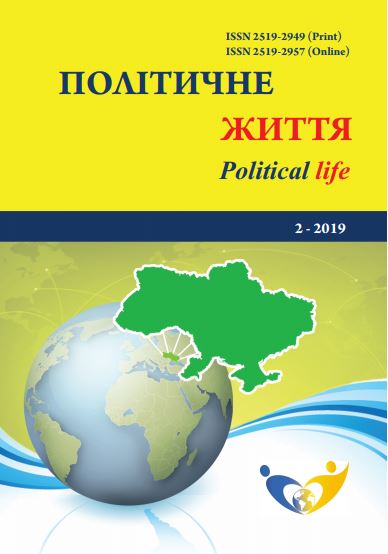Information stress in children as a reason of psychological consequences of military conflicts.
DOI:
https://doi.org/10.31558/2519-2949.2019.2.8Keywords:
military conflict, stress, information stress, information security, psychological disadaptationAbstract
The article investigates information influence on the psyche of children in the conditions of military conflicts and peculiarities of the information stress emergence as a cause of the psychological consequences of these conflicts. Modern military confrontation is practically impossible without active information support, which can strengthen or weaken one of the conflicting parties. Participants in military conflicts are so masterful in manipulating information to change public opinion in the country and in the world, that skillful use of psychological operations can sometimes make military actions unnecessary. Currently, Ukrainian TV channels do not emphasize the spectator’s attention to the humanization of everything that is happening in the East of Ukraine and does not individualize the events. Children, being especially sensitive to information products, not only perceive them, but also primarily develop in the atmosphere of a certain subculture created by these products, and represent a risk group for harmful information influence and information threats. Children, not having a formed personal core, through the prism of which adults filter, analyze, carry out critical appraisal and comprehension of the surrounding reality, children can not navigate in the semantic field of information, more prone to various kinds of manipulations, trustful, naive, do not distinguish the veiled falsehood from the truth, do not have yet formed ideals and standards for conducting the appropriate comparison. Presence of a child in military conflict conditions, where the role of information is of exceptional importance, can cause physiological maladjustment, which leads to mental disorders. Problems of informational and psychological safety of children are becoming more important in modern conditions, and understanding of the existing threats and risks, mechanisms of their actions and protection possibilities becomes not only a psychological problem, but also an urgent need for the social practice.References
Тоффлер Э. Шок будущего: Пер. с англ. М.: «Издательство ACT», 2002. 557 с.
Панченко О. А. Информационная безопасность ребенка. К.: КВИЦ, 2016. 379 с.
Панченко О. А Проблемы информационной безопасности в эстетической медицине / О. А. Панченко, И. И. Кутько. Медична інформатика та інженерія. 2016. № 1. C. 94-95.
Панченко О. А. О понятии "информационная безопасность ребенка” / О. А. Панченко, А. В. Кабанцева, Е. Б. Симоненко, В. Г. Антонов. Медична iнформатика та iнженерiя. 2016. № 1 C. 96-97.
Закірова С. Г. Психотравмуючий фактор інформаційної складової війни четвертого покоління. Психосоціальна підртимка осіб з травмою війни: міжнародний досвід та українські реалії: збірник матеріалів, доповідей Всеукраїнської науково-практичної конференції. Маріуполь: ДонДУУ, 2018. С. 30-33.
Доброносова Ю. Особливості впливу медіатравматичного досвіду на самоактуалізацію особистості в культурі медіарозмаїття. Психосоціальна підртимка осіб з травмою війни: міжнародний досвід та українські реалії: збірник матеріалів, доповідей Всеукраїнської науково-практичної конференції. Маріуполь: ДонДУУ, 2018. C. 22-25.
Сорока О. В. Діагностувальний потенціал арт-терапевтичних технологій у роботі з дітьми, які пережили стрес. Психосоціальна підртимка осіб з травмою війни: міжнародний досвід та українські реалії: збірник матеріалів, доповідей Всеукраїнської науково-практичної конференції. Маріуполь: ДонДУУ, 2018. С. 158-161.

